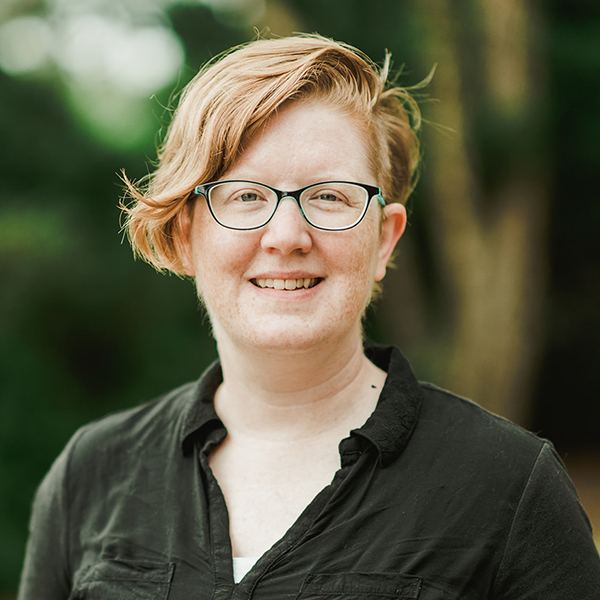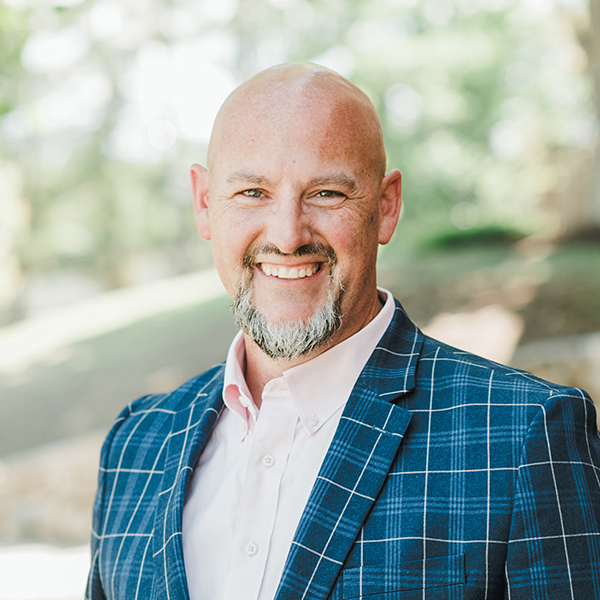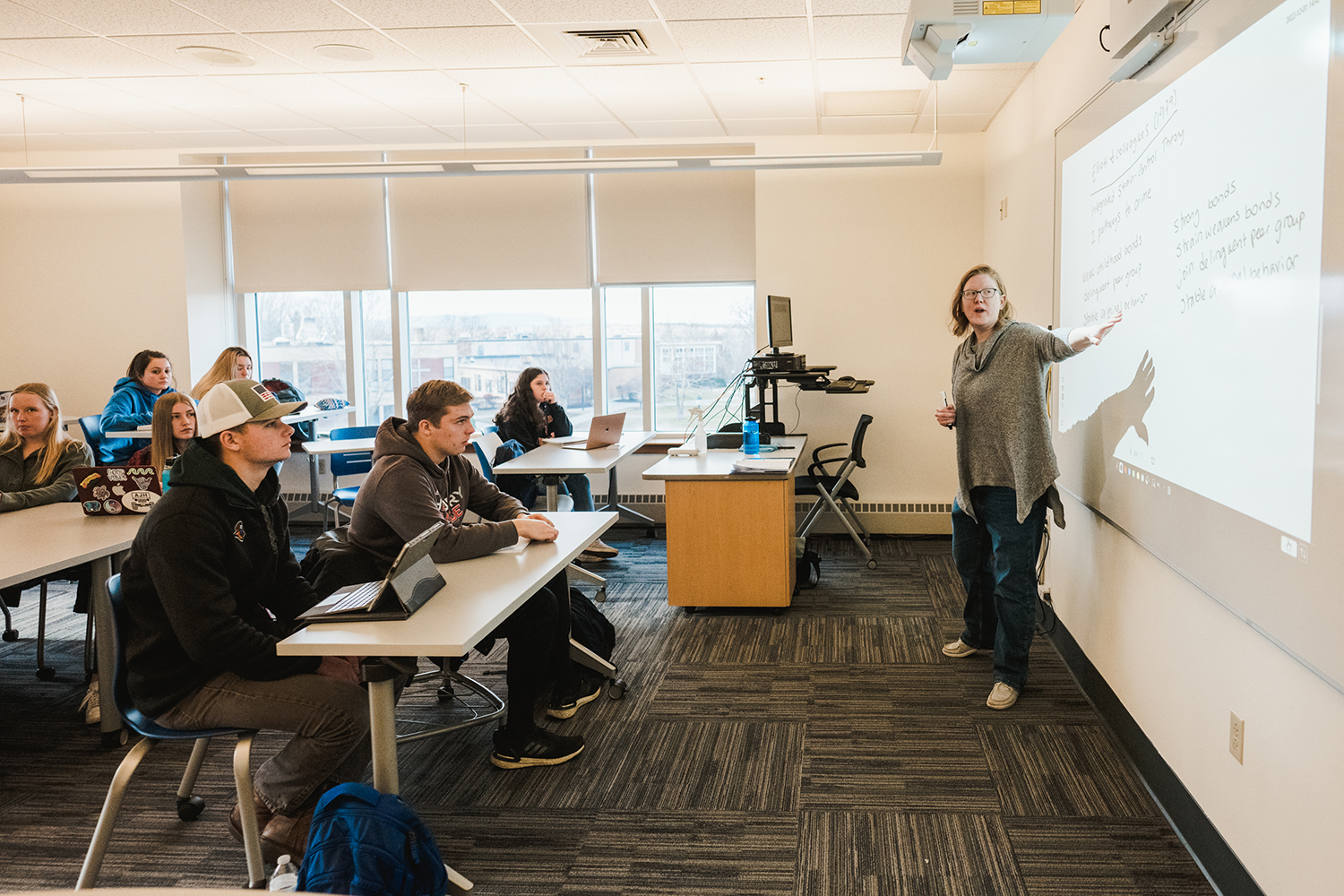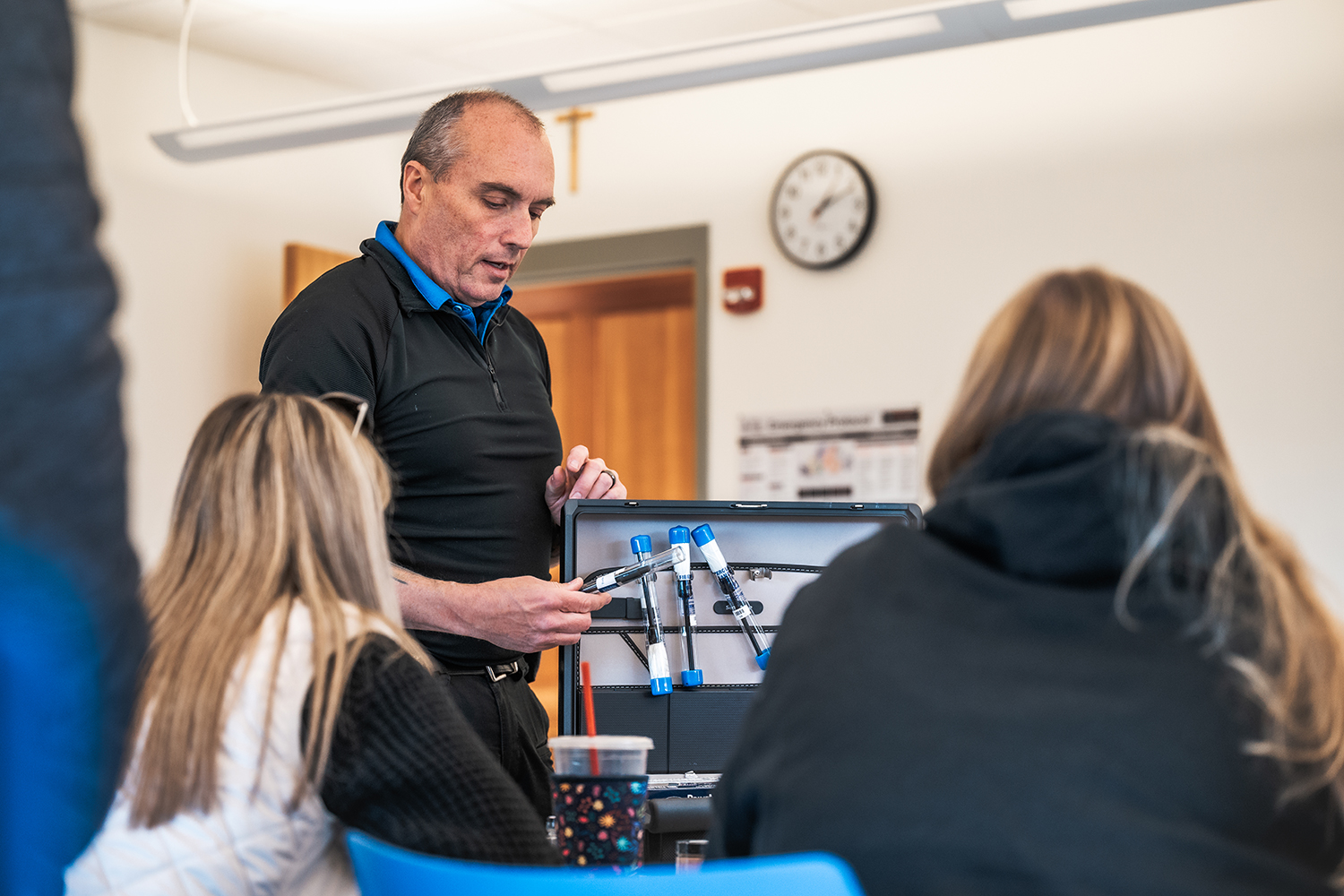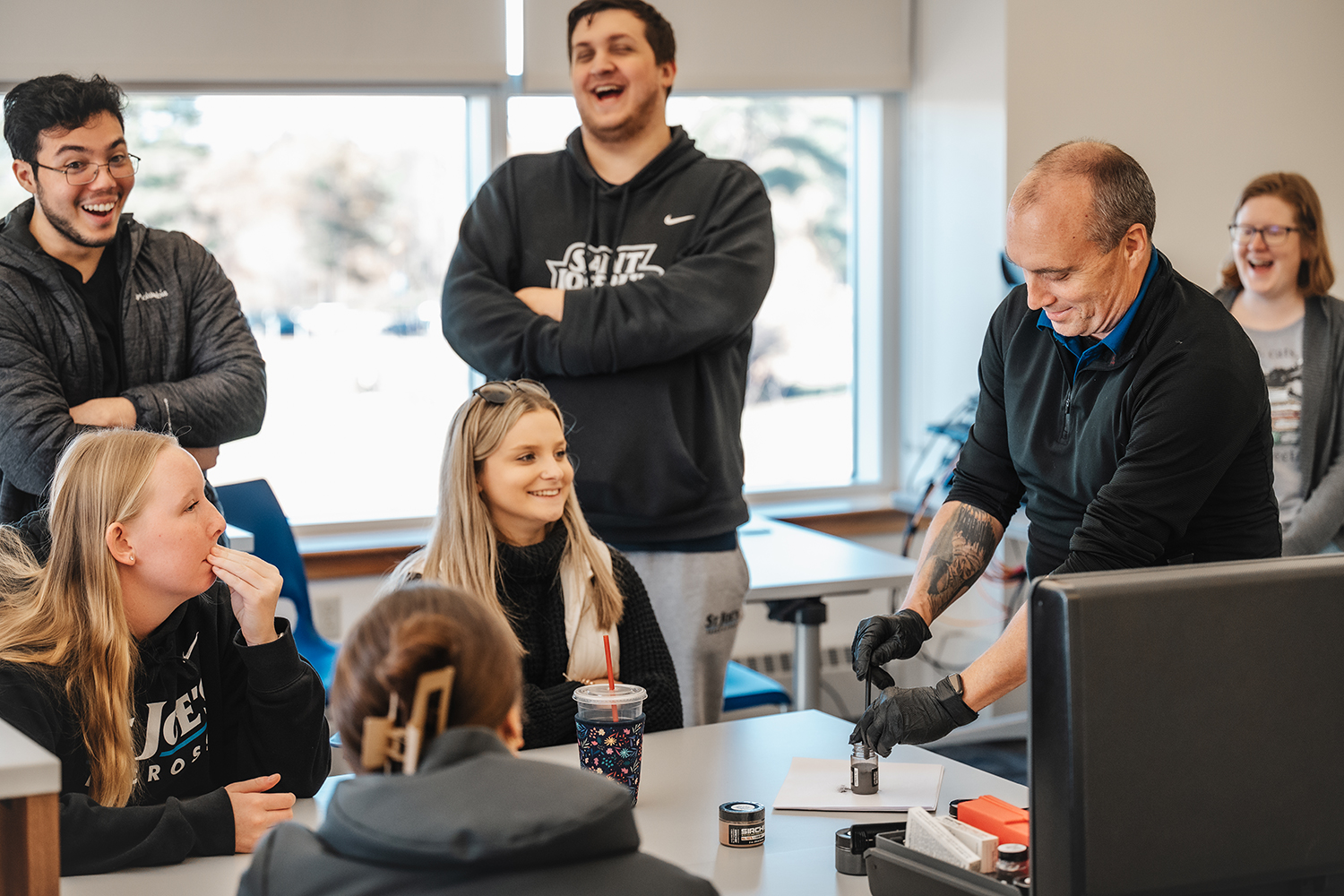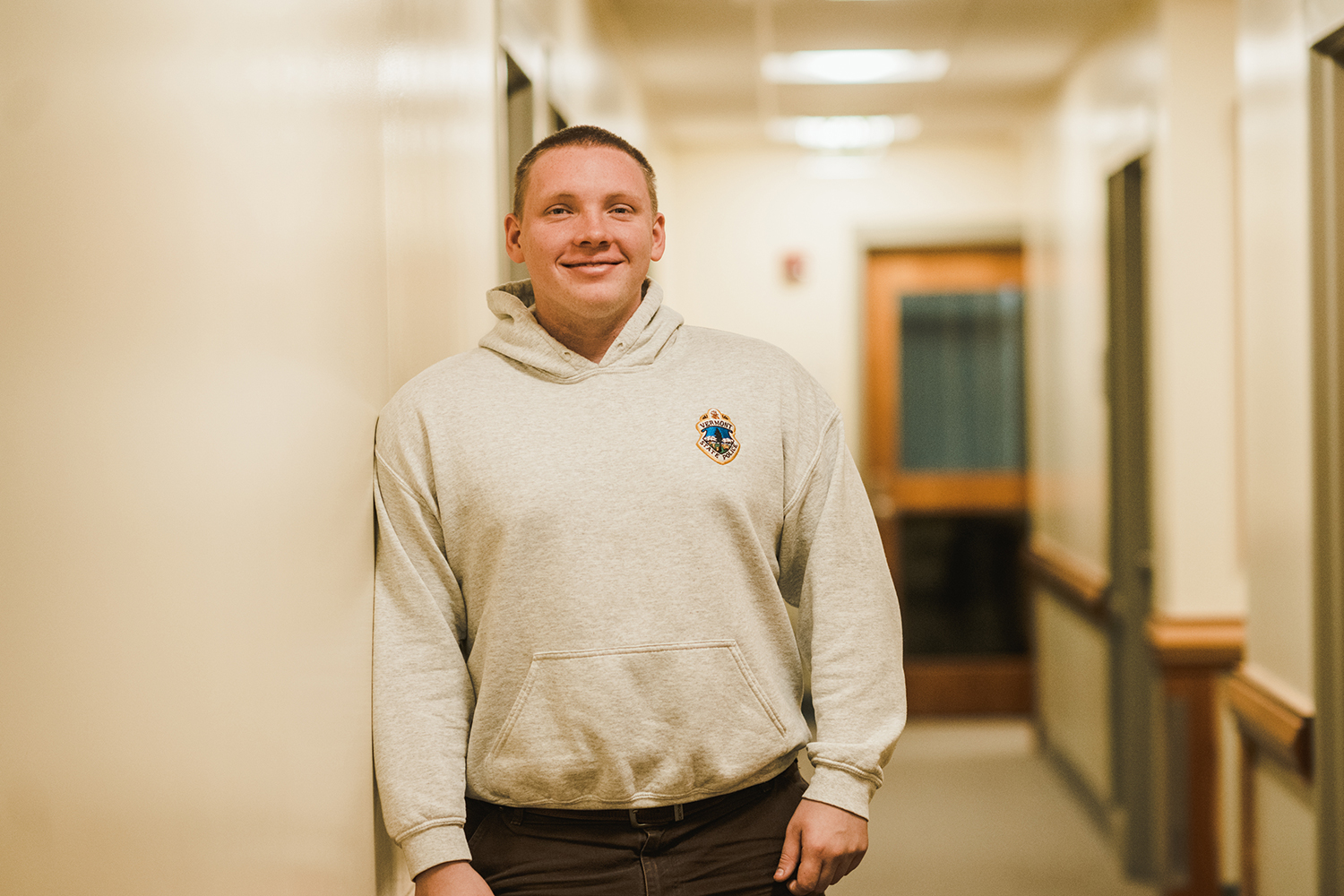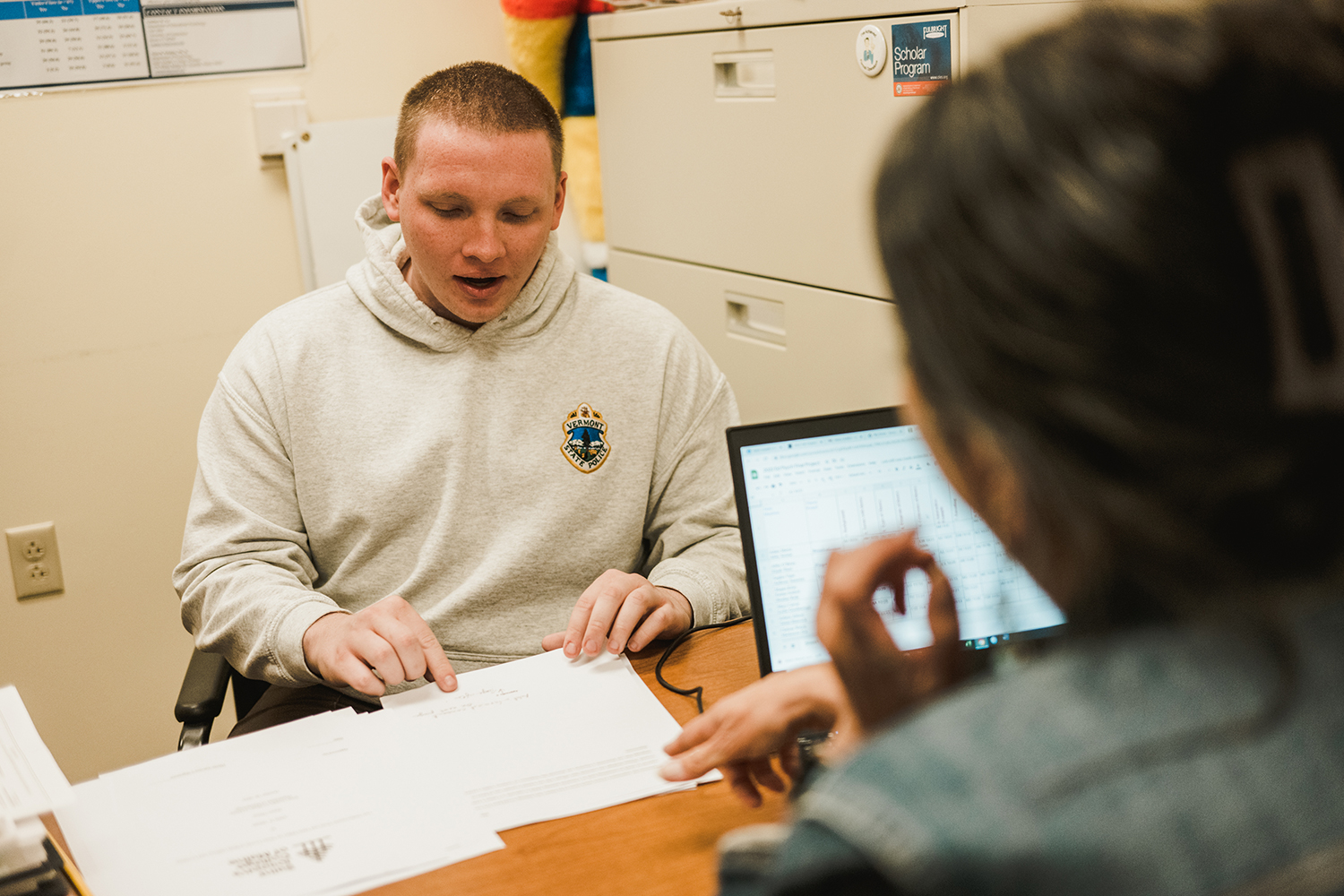Bachelor of Science in Criminal Justice
Saint Joseph’s criminal justice program familiarizes students with the interdisciplinary approach to crime and justice, that includes historical, social, and psychological context.
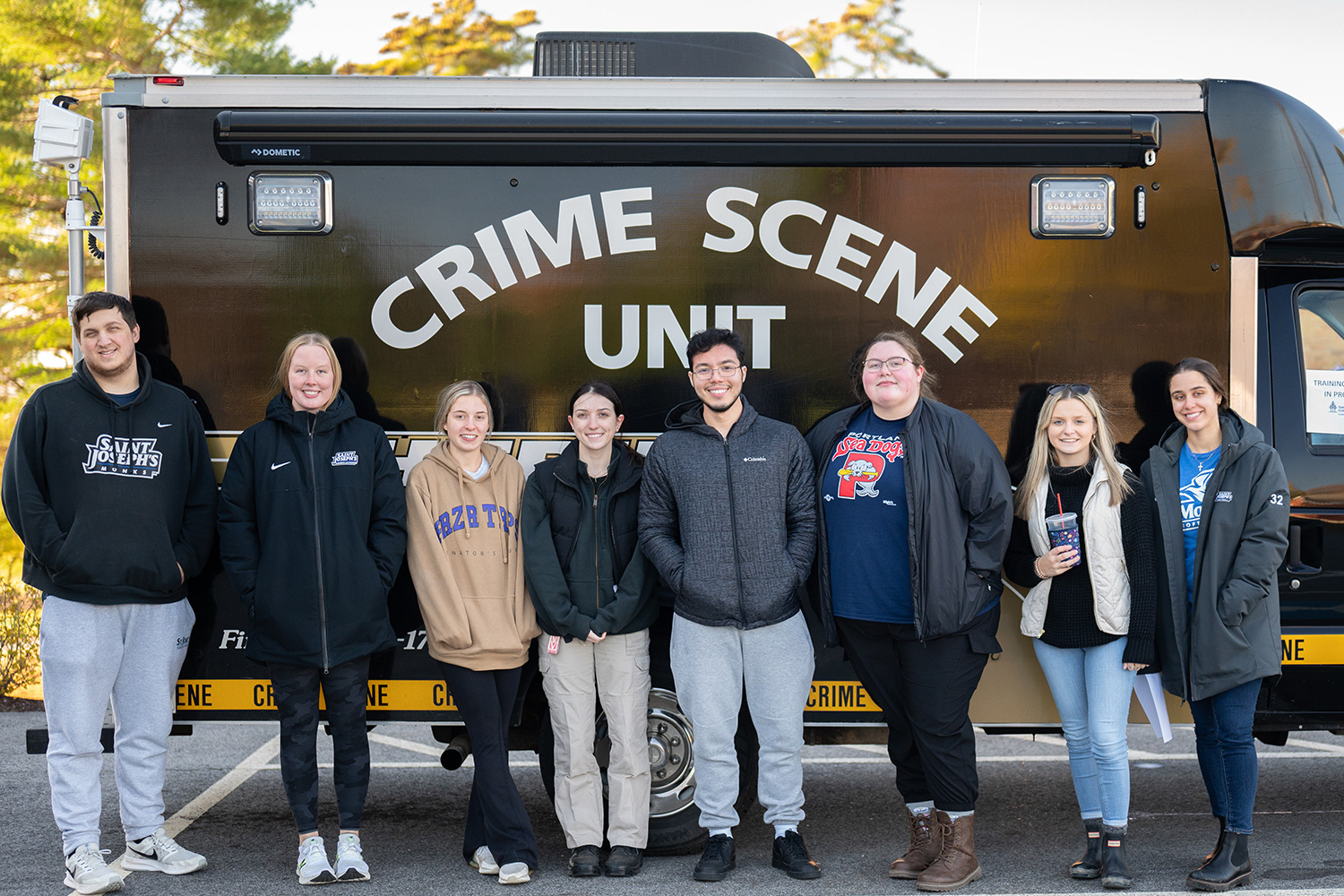 A degree in criminal justice from Saint Joseph's prepares students for careers in social services, judiciary and law, law enforcement, and business. Graduates of the program have gone on to serve on police forces, enter law school, work in the federal government, and more.
A degree in criminal justice from Saint Joseph's prepares students for careers in social services, judiciary and law, law enforcement, and business. Graduates of the program have gone on to serve on police forces, enter law school, work in the federal government, and more.
Students majoring in criminal justice receive a foundation in theory and research as well as opportunities for practical application through internships. This major is for students who want to pursue careers in a wide range of criminal justice opportunities within city, state, and federal jurisdictions, such as probation, parole, police, immigration and naturalization, and the FBI.
At a Glance
- Hand-on learning simulations: mock crime scenes, moot courts, and emergency preparedness and response drills.
- Courses incorporate field trips, demonstrations, ride alongs, and community and engaged learning opportunities into the curriculum.
- 16 hour per week, full-year internship immerses you in criminal justice your senior year.
- Incorporates courses from related disciplines including: History/Political Science, Psychology, Social Work, and Philosophy.
- Concentration available for interested students in Forensic Psychology.
- Key academic tools necessary for graduate study.
- Dynamic, dedicated faculty experts with a wide variety of backgrounds.
- One-on-one faculty mentoring with faculty that will get to know you well and will work to personalize your experiences.
- Rigorous curriculum requires critical thinking and insightful articulation of ideas, and prepares students for field placement and graduate school.
- Leadership opportunities within Saint Joseph’s Criminal Justice Club.
Curriculum
The Bachelor of Science in Criminal Justice combines a liberal arts education with a professional criminal justice curriculum. Topics covered include social research, criminology, race and ethnic relations, and human nature and ethics.
Forensic Psychology Concentration
This optional concentration is designed for students with a particular interest in the interaction of psychology and the law. Forensic Psychology is a broad field – practitioners work in areas such as crime trends, criminal profiling, mental health treatment for offenders and substance abusers, jury selection, impact of divorce, custody, and more. This concentration does not lead to a professional license; rather it provides a foundation for graduate work or entry-level employment.
A minor in criminal justice is available and requires students to take 20 credit hours.
Internship Partners
- MEMA
- DHHS
- Cumberland County Sheriff
- Legal Aid
- Westbrook Police Department
- Portland Police Department
Faculty highlight
Meredith Emigh-Guy has worked at a forensic psychiatric hospital, worked for a law firm, participated in research involving a halfway house, and participated in two research projects that involved reviewing and coding information from police files.
Why I love teaching Criminal Justice
Criminal justice courses allow students to understand how the criminal justice system functions, it provides students with a critical perspective on issues related to the field (gun violence, drug overdoses, human trafficking, to name a few) and exposes students to possible career pathways and graduate school opportunities connected to the field of criminal justice. As for courses that criminal justice students might take, I think an PY101: Introduction to Psychology is a great compliment to our CJ307: Criminology course. These courses allow students to examine the various theories surrounding why people engage in criminal behavior and how this impacts the response from the criminal justice system and the community.”
Student stories
Using her research internship to improve police and community relations
“I was helping a local Police Department research their use of force reports through the years. I have been collecting data on the following categories across the reports, including but not limited to: race, gender, the kind of force used, and how many officers were involved. Use of force is a very important topic in today’s society and it is crucial that members of the community truly understand how it is used and calculated, as it can be misinterpreted. Participating in this research project has shown that it is important to try and create relationships within the community to diminish the stigma related to the overuse of power or police brutality. Having a level of trust in the police officers in your community makes it easier to call for help when needed. It’s really about creating long-lasting relationships to make your community a better place.”
In the News
Criminal Justice Students Make New Mainers Feel More at Home
At Saint Joseph’s, community grows in our students, faculty, and staff who recognize learning as a tool to lift ourselves in the service of others. The CJ 202: Introduction to Criminal Justice class put that ethos into practice with a high impact service-learning project. Focusing on Maine’s growing refugee population, the class decided to do a clothing drive. They collected enough to give to two organizations.
Alumni stories
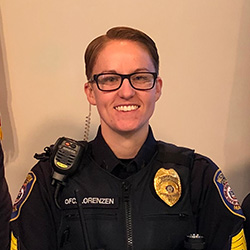
Jacqueline Lorenzen
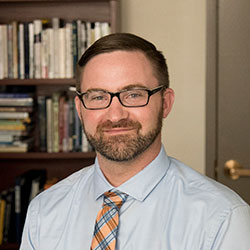
Brad Campbell, PhD

John Burke
Career moves
A degree in criminal justice from Saint Joseph’s College prepares students for careers in social services, judiciary and law, law enforcement, and business. Graduates of the program have gone on to serve on police forces, enter law school, work in the federal government, and more.
